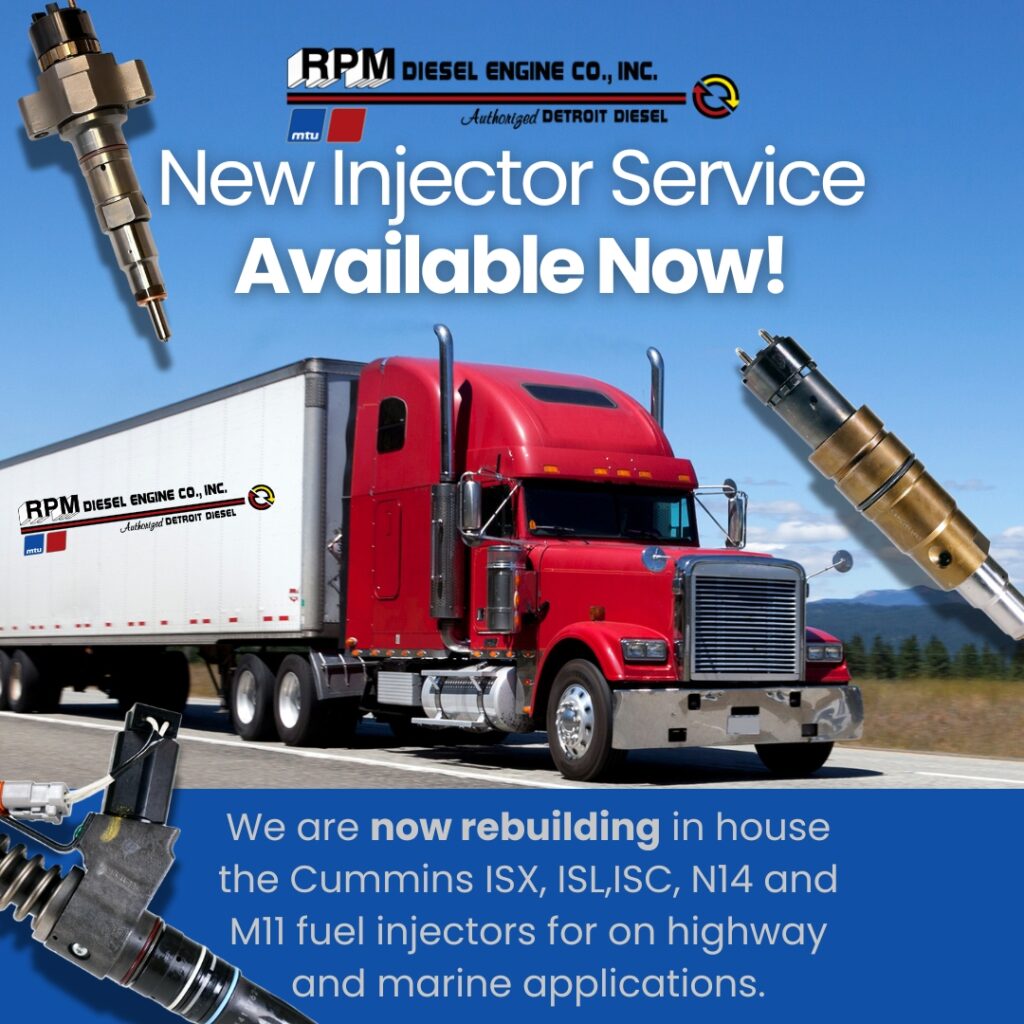Marine Diesel Engine Maintenance
Proper engine maintenance is key for prolonging the life of your vessel!
Why have your diesel engine regularly serviced?
- Improved fuel efficiency!
- Consistently high performance!
- Lowers engine emissions!
- Decreased risk of unexpected problems!
- Fewer avoidable & costly repairs!
Without proper engine maintenance, you will spend unnecessary time and money.
The last thing you want to be is out at sea and have your engine break down. It will be extremely costly to get towed back into port and then have someone come out to do the repair at that point. With proper maintenance, you can help to prevent costly repairs and unnecessary expenses.
Proper Marine Diesel Engine Maintenance consists of quite a few different aspects of service, all of them playing a vital role in the health and longevity of your engine. It is very important to do the proper maintenance in the proper timeframe. One of the first and most important aspects is the lubrication of the engine. The first parts of the lubrication system that typically require maintenance are the oil filter and the gaskets & seals around it. You want to make sure that you regularly check the level of engine oil before every venture on the water. The color of the oil is as important as the amount of oil in the engine, so you will still need to pay attention to engine hours for when to change the oil.
Maintaining the cooling system is also another very important aspect of engine maintenance. Having the core components of your engine functioning at proper temperatures is vital to its performance. A vital component in this system that is one of the most common causes of issues is the sea strainer. This is important to keep flowing properly as it is what draws in outside cooler water to run through the system and help cool the engine’s internal water, as well as the exhaust. Outside of the sea strainer is the raw water pump, another major area of failure and required maintenance. The reason these pumps fail is that over time the impellers will harden from the seawater, causing warping, bending, or even the breakoff of the vanes. Replacing the impeller every year is recommended to ensure proper functionality.
Along with the pump and sea strainer, you will also want to check the mixing elbow regularly. This part of the system will commonly corrode and scale up over the course of a few years, due to the excessive heat from the exhaust that it superheats.
Besides the basic mechanics of the engine itself, maintenance of the electrical components of the engine is also required. Dirty and loose connections can quickly prevent your engine from operating properly. Fortunately, the engine itself won’t take any damage from a failure in the electrical system, but this will keep you from getting to your destination. The last thing you want is to be stranded at sea due to a faulty electrical system.
Keeping your vessel welled fueled may sound like a no-brainer, but it also helps to keep algae from being able to grow in the tank itself. If algae start to grow, it can cause some serious problems for the health of your vessel. Also, making sure your fuel filter is regularly changed can help combat the growth potential for dangerous algae.
Contact RPM Diesel Engine Co.
We offer the highest standard of service for virtually anything you need concerning your marine diesel vessel.
Fill out the form below and one of our representatives will get back to you.


